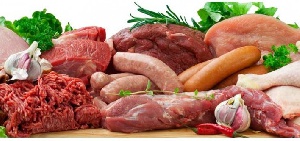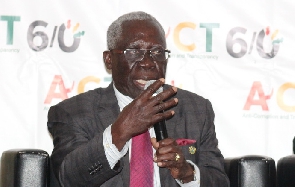 Government has been urged to tighten food safety standards
Government has been urged to tighten food safety standards
Key actors in the meat value chain industry in Ghana has urged for a more enabling environment in the sector to ensure sustainable quality meat processing standards for food safety and nutrition security.
The consultation organized by the Food and Agriculture Organization of the United Nations (FAO) served as a springboard for dialogue on the improvement of the meat inspection system in Ghana and also to deepen an effective partnership.
The two-day consultation engaged actors and Ghana’s competent authorities to carry out the strengths, weaknesses, opportunities and threats (SWOT) analysis within the value chain. Additionally, the workshop focused on building the technical capacity for meat inspectors, butchers and meat cutters.
FAO contribution of building capacity along the meat value chain
The meat industry is an important sector of the agricultural economy in Ghana, which represents a significant opportunity for livestock farmers, meat processors and consumers in the country but also constitutes to a big challenge for safe processing and marketing of meat and meat products.
Speaking at the opening of the consultation, Anthony Akunzule, National Project Coordinator, Emergency Center for Transboundary (ECTAD), Ghana, explains that, “Despite the huge contributions in the meat inspection system, it is still burdened with many challenges in this present era in which Ghana has signed on the International Health Regulations (IHR 2005)” of the World Health Organization. He further added, “In the area of food safety, the Food and Drugs Authority (FDA), Veterinary Service Department (VSD), Environmental Health of the ministry of local government and rural development, butchers, and the academia must develop guidelines and codes of practices to guide the meat inspection system in the country.”
FAO’s Food Safety and Quality Officer, Blaise Ouattara, also added the need for partners in the food processing industry to be involved in the policy formulation and the decision making process to ensure detailed analysis and solutions to the numerous challenges facing the sector.
He further explained that, “Enabling more inclusive and efficient agricultural and food systems, public sector organizations’ capacities and investments plans, supportive and inclusive efficient agricultural food systems are part of FAO strategic programmes of ensuring food and nutrition security.”
Ghana’s veterinary and meat inspection system
A statement by the Chief Veterinary Officer of Ghana, Mr. Kinsley Micky Aryeh called for strict regulation and enforcements within the meat processing and inspection units in Ghana. He emphasized that Ghana’s meat inspection sector must take a more collaborative approach between the Ministry of Health, Ministry of Agriculture, Ministry of Local Government and Rural Development. In his view, poor monitoring and evaluation system has also contributed to the various challenges of food related health crisis and the growing menace of antimicrobial resistant use in Ghana.
Ghana’s Veterinary Services Directorate is responsible for the control of meat hygiene, meat inspection and animal health related issues. However, due to limited human resource, education in food safety and lack of national policy on food safety has contributed to the production of unsafe meat as many farmers and meat vendors slaughter their animals in unapproved facilities without any regulation or standards.
FAO support to Ghana’s meat inspection system
FAO Ghana and FAO Regional Office for Africa implemented a series of training activities in collaboration with the national authorities for meat inspectors, butchers and meat cutters, and live bird market professionals to provide basic knowledge of the national meat control system including the roles and responsibilities. In May 2017, key meat value chain stakeholders were engaged to explore areas of collaboration for capacity development.
According to Veronica Faal from FAO’s Regional Office for Africa, the organization has continued to support Ghana in the identification of issues and challenges towards the Zero Hunger Goal. Food safety and security plays a crucial role in the eradication of malnutrition. Such collaboration by involving all stakeholders in the development of policy guidelines for a strengthened meat inspection system brings efficiency not just to the sector but also beyond.












